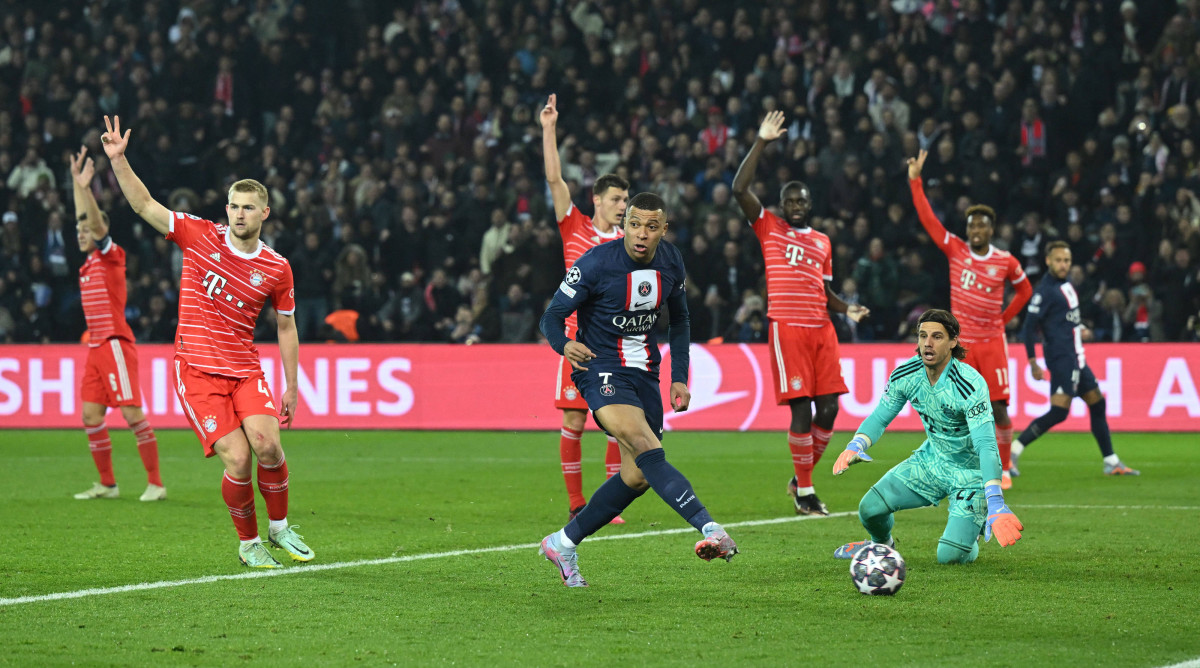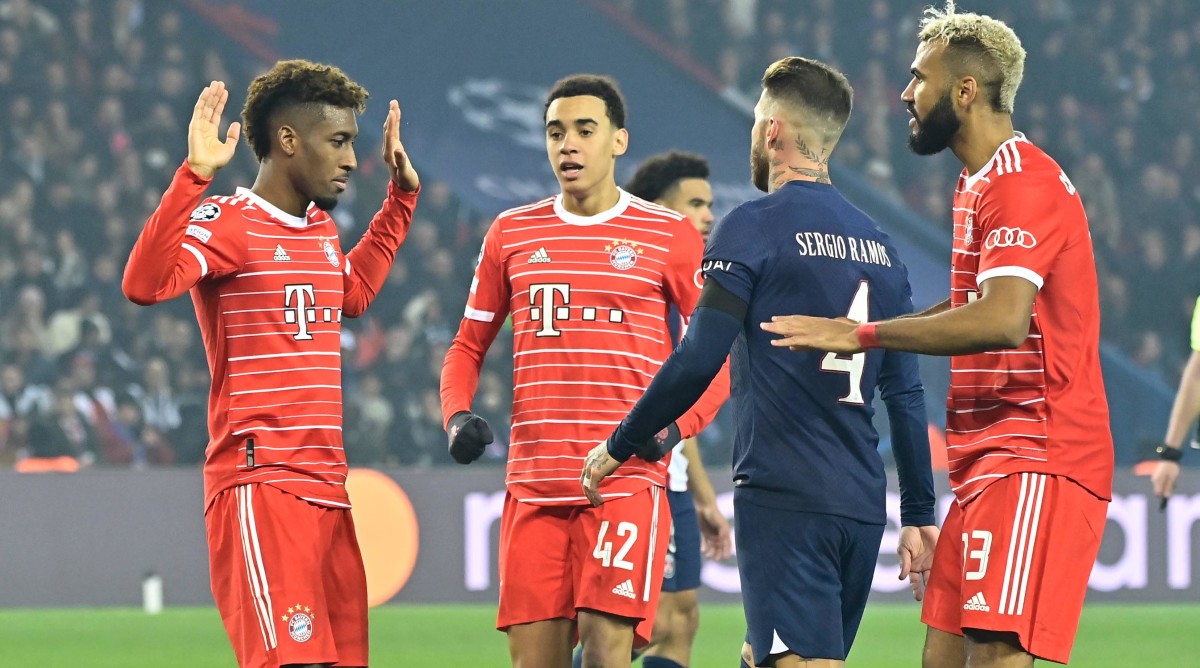PSG, Bayern Munich’s Star Power Belies Deep Flaws in Champions League Knockout Stage
There was probably enough in the final 20 minutes for Paris Saint-Germain to think that it can turn the tie around in Munich, but that really wasn’t the story of its 1–0 defeat to Bayern.
For the first hour, Bayern was implausibly dominant, and its regret will be that it didn’t get the two or three goals in that spell that might effectively have settled the tie. Ultimately, perhaps, this was a tale of two deeply flawed sides: one with an enormous gulf between its forward line and its midfield, and the other prone to collapse under pressure.
PSG, in recent years, seemed to have settled on a policy of three stars up front with three scrappers in midfield, which was at least an acknowledgement that a problem existed with regaining the ball. But Idrissa Gana Gueye and Leandro Paredes have both gone, robbing PSG of bite, and Ángel Di María has departed as well. With Fabián Ruiz and Vitinha confined to the bench, there is little to link midfield to the forward line. Not for the first time, PSG’s recruitment has made more sense from a marketing than a footballing point of view.

With Kylian Mbappé confined to the bench due to injury, Christophe Galtier opted for a front two of Neymar and Lionel Messi, with the latter’s work rate restricted even more than normal by his own hamstring problems. That meant a midfield four, which could have tucked in and tried to dominate Bayern centrally but instead became very stretched, with Carlos Soler and the 16-year-old Warren Zaire-Emery offering little assistance to Marco Verratti and Danilo.
With PSG extremely wasteful in possession, Bayern controlled possession to an unexpected degree and seemed almost uncertain as to what to do with it. Although it managed 10 shots to PSG’s one before the break, it was threatening only in a vague sense.
The goal, though, did eventually arrive, eight minutes into the second half. PSG had not kept a clean sheet in its previous five games, and it was easy to see why. There was no pressure at all on Alphonso Davies as he crossed from the left, nobody picked up Kingsley Coman as he drifted in from the right, and then, for good measure, Gianluigi Donnarumma dived over his side-foot volley. The Italian keeper was at fault, but he then made a stunning save on an Eric Maxim Choupo-Moting shot and another useful block to stop Benjamin Pavard.
A clinical goal from Kingsley Coman puts Bayern Munich ahead of PSG!
— SI Soccer (@si_soccer) February 14, 2023
(via @TUDNUSA)pic.twitter.com/ZAoN97DulP
PSG was only playing Bayern at all because of its sloppiness in the group stage. The issue was less the two draws against Benfica than the narrow wins over Juventus on the first and last match days. In both games, it was comfortable but allowed the game to drift to 2–1 victories. Sixteen points would usually be enough to take the top spot, but PSG’s sloppiness opened a possibility for Benfica, which it took by scoring five second-half goals away to Maccabi Haifa to take the top spot. Finishing second created the possibility of an extremely tough last-16 draw, and that’s what PSG got: unfortunate perhaps, but entirely avoidable for a less lackadaisical team.

Not that all has been well at Bayern recently. In part, three draws in late January reopened the Bundesliga title race, but it’s more the fallout from the decision to replace the long-time goalkeeping coach Toni Tapalović with Hoffenheim’s Michael Rechner. The goalkeeper Manuel Neuer, out after breaking his leg skiing, has made his disappointment at the decision clear and has slightly bafflingly been threatened with a $1.5 million fine for doing so. Tapalović, who had been at the club since 2011, was seemingly ousted for allegedly leaking the details of coaching meetings to Neuer.
Meanwhile, manager Julian Nagelsmann’s record in big European ties has been doubted and there must be questions about how unable he seemed to stem the PSG surge after Mbappé had come on. Pavard made two fine blocks before being sent off for a second yellow, and Mbappé had an equalizer ruled out for a tight offside against the flying fullback Nuno Mendes.
Kylian Mbappé’s equalizing goal was ruled out by VAR for offside in the buildup!
— SI Soccer (@si_soccer) February 14, 2023
(via @TUDNUSA)pic.twitter.com/POAA2A8e84
By the final whistle, there was an odd sense that Bayern had gotten away with it, but in reality, it should have been out of sight before the hour. PSG’s front-three can turn any game if they get the ball, but they cause a major problem against organized opponents. Bayern was clinging on by the end, but it has the lead in the tie, and it has the memory of just how ordinary it made PSG look for two-thirds of the game—and that wasn’t just down to Mbappe’s absence.
